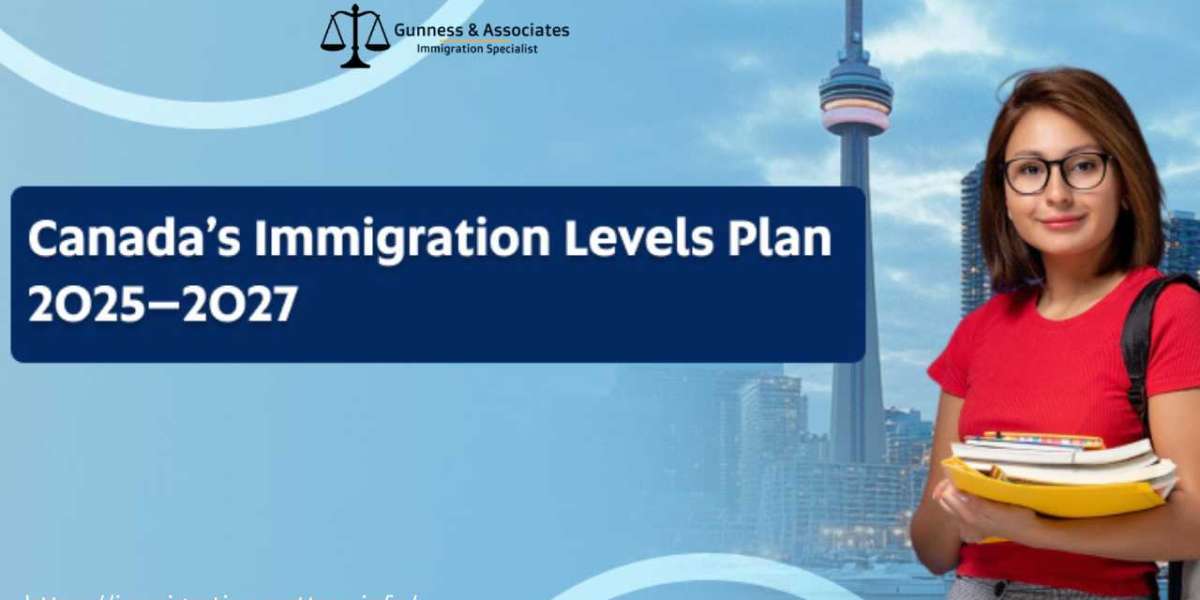Key Highlights in Canada's New Immigration Levels Plan for 2025-2027
IRCC has announced a crossroads plan, developing clear, concise goals toward both temporary and permanent pathways of immigration. This strategy seeks to not only help Canadian businesses grow but also further economic development and community diversity throughout this country, paying special attention to the strengthening of Francophone communities outside the province of Quebec. Here are the major elements of this strategic immigration framework.
Temporary Resident Targets: A New Approach to Managed Migration
The New Immigration Levels Plan is a pioneering step towards shifting to a holistic immigration policy for Canada, as it has announced introducing temporary resident arrival targets. These targets are part of efforts to regulate migration flows, support the labor market in key sectors, and further strategic goals of critical industries. The projected targets of temporary residents are:
2025: 673,650 newcomers, to include international students and temporary foreign workers.
2026: 516,600 new entries.
2027: 543,600 new arrivals.
The goal is to gradually decrease the percentage of temporary residents to only 5% of Canada's total population by the end of 2026. Measures include stricter application criteria for study permits, limited eligibility for post-graduate work permits, and adjustments to work permits issued to spouses of international students and foreign workers under the IMP and TFW programs.
It is projected that by 2026 and 2027, international students will be the biggest share of temporary arrivals due to Canada's equilibrium in supporting its students with sustainable population growth.
Sustainable Development Goals: Supporting Economic and Cultural Development
Canada has announced annual targets for permanent resident admissions toward sustained economic growth and the balance of demographics. Some of the targets are as follows:
395,000 new permanent residents in 2025.
380,000 new permanent residents by 2026.
365,000 more permanent residents in 2027.
This streamlined reduction targets coordination with community capacity, but focused on economic requirements, with the emphasis being on economic immigrants, who will constitute around 62% of all permanent residents in 2027. Skilled workers are to be given priority, particularly in such areas as healthcare and skilled trades. An "in-Canada focus" - updated immigration strategy for Canada: Simplifying the transition to permanent residency for international students and temporary workers already within the country, this approach addresses workforce demands across Canadian businesses and industries.
Prioritizing Family Reunification and Refugee Protection
Canada continues to place family reunification at the top of its list, with a steady 22% of its total admissions for family-sponsored immigrants. This helps in the strengthening of communities as well as proper adjustment of newcomers. Another 15% of permanent resident admissions is set aside for refugees and protected persons to fulfill the humanitarian values of the country as well as its long history of providing refuge to distressed ones.
As a measure of the new Levels Plan, in accordance with the 2024 Policy on Francophone Immigration, new targets have been set to grow the French-speaking immigration outside Quebec up to 8.5% by 2025, then 9.5% by 2026, and 10% in 2027. These targets further diversify the language in Canada and add more Francophone presence around the country.
A sustainable approach to immigration
The Immigration Levels Plan 2025-2027 clearly proves that Canada is supporting and committing to a sustainable immigration strategy by embracing the readiness of communities as well as economic growth. To ensure this strategy meets the needs of newcomers as well as Canadians, Immigration, Refugees and Citizenship Canada (IRCC) collaborated with multiple stakeholders, including federal agencies, provinces, territories, municipalities, Indigenous communities, and other representatives of society.
This whole-of-society approach will establish a migration system appropriate to the needs of the Canadian workforce and the capacity of communities in Canada. It aims at strengthening the social and economic fabric of the country by addressing current challenges, such as labor shortages, while fostering inclusive communities that support the integration and success of immigrants.
The plan focuses on sustainable growth, aiming to balance short-term economic priorities with long-term social well-being in order to ensure that Canada remains the global leader in immigration and diversity.
What This Means for Prospective Immigrants and Employers in Canada?
This new plan really opens up opportunities for all those with hopes and aspirations to live in this country as permanent residents themselves, and business is on the lookout for skills needed in Canada. Canada’s New Immigration strategy focuses on the transitions of temporary residents to permanent status, transferring the burden squarely onto those international students and workers already here in the country, which makes life easier for them to take a better footing in life within the country.
This will improve workforce shortages by taking skilled immigrants, who are available in the healthcare sector, technology, and skilled trades, to the critical sectors for the sake of labor demands.
If you want to know more details about “Canada’s New Immigration Levels Plan for 2025-2027“ you can contact one of our immigration specialists at Gunness Associates.
Please Book an Appointment with a Member of Our Assessment Team!
Book an Appointment Now with Hamlet!
Book an Appointment Now with Pratik!
Gunness Associates has helped thousands of people successfully immigrate to Canada with their families. Our skilled and experienced immigration experts have the expertise to accurately examine your case and advise you on the best method of proceeding to serve your needs.
For honest and straightforward advice, contact the experts
Get a free Assessment
Join our newsletter and get up-to-date immigration news Click here
All rights reserved ©2024 Gunness Associates














